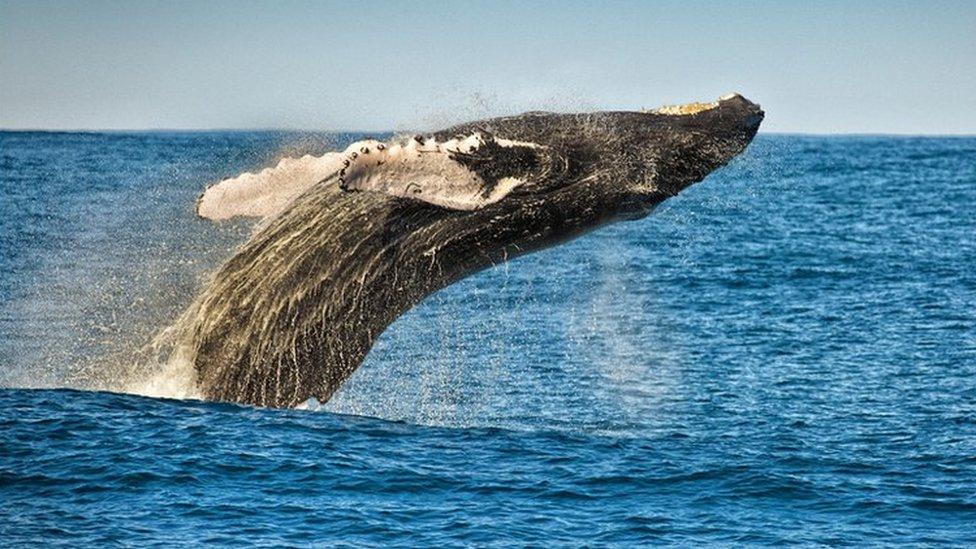New marine protection area to be created in Guatemala
- Published
- comments
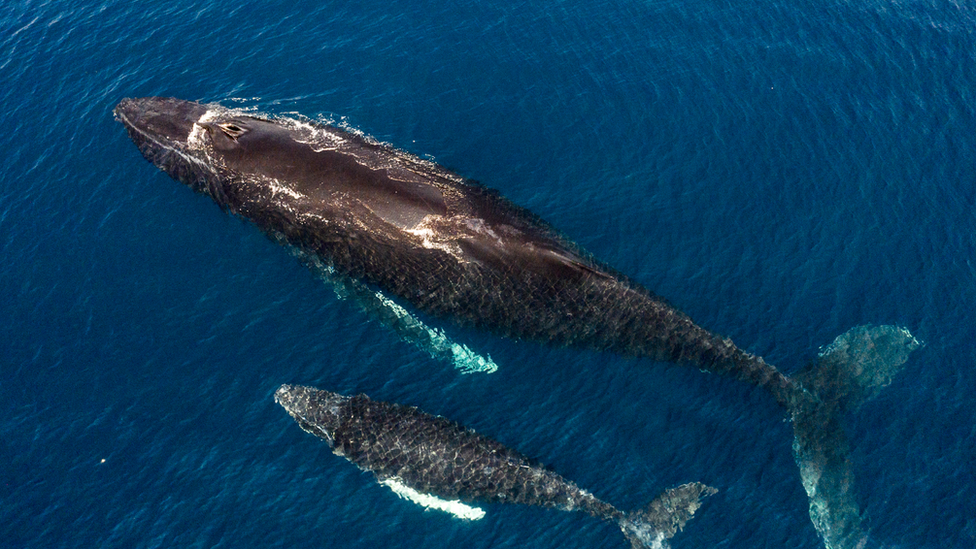
Whales are among the animals these areas are seeking to help protect
Guatemala's government has announced efforts to establish eight marine protected areas (MPAs) in the country, to help protect animals like whales, sea turtles, and sharks.
The plans were announced at the United Nation's Ocean Conference in Lisbon, Portugal.
These new MPAs are a result of Guatemala's aim to increase the protection of its oceans.
The Central American country, south of Mexico, is home to a wide-range of sea life and rainforests.
It's also part of a wider efforts to help give protection and conservation of 30 percent of the ocean globally, as part of something called The High Ambition Coalition.
This an informal group of approximately 61 countries within the UN Framework Convention on Climate Change which are committed to advancing progressive proposals on climate ambition.
The new marine protected areas are very large, coming to around 18,000 km² in total, which represents 13 percent of Guatemala's waters.
What do we know about the areas that will be protected?
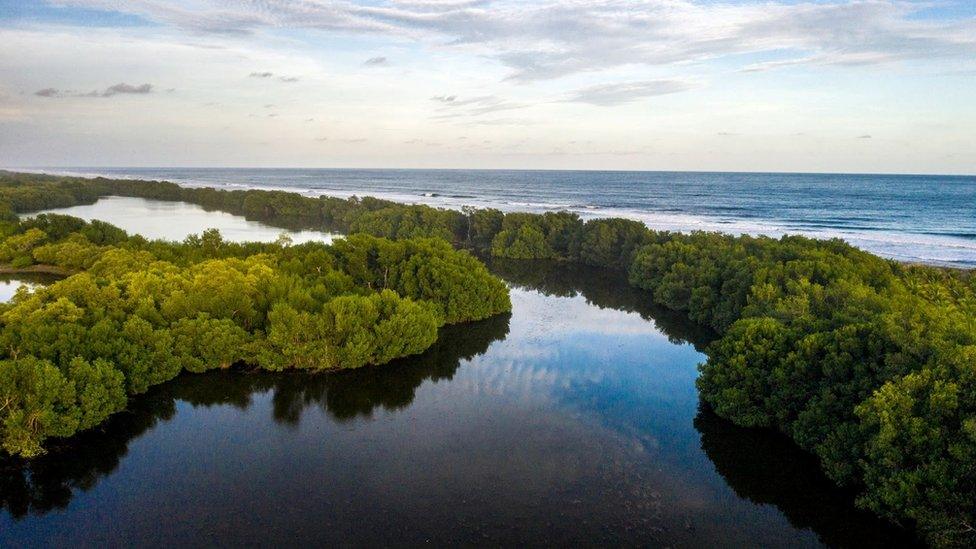
Six marine-coastal areas are located along the country''s shoreline, to protect important mangrove areas and marine biodiversity.
Another two are located entirely at sea to help with conservation measures and sustainable uses of natural resources.
The establishment of these marine protected areas ensures the supply of natural resources such as fisheries, tourism, ocean health, among others, contributing to the economic sustainability of local communities and the country in general.
This proposal is expected to include the Cañón de San José and Mar del Oeste marine areas, which together will contribute to 14,000 km².
Wildlife Conservation Society Executive Director of Marine Conservation Simon Cripps said: "We congratulate Guatemala for their global leadership. They understand the value of natural resources in driving a blue economy and making sure that people benefit from this."
Why is marine conservation so important?
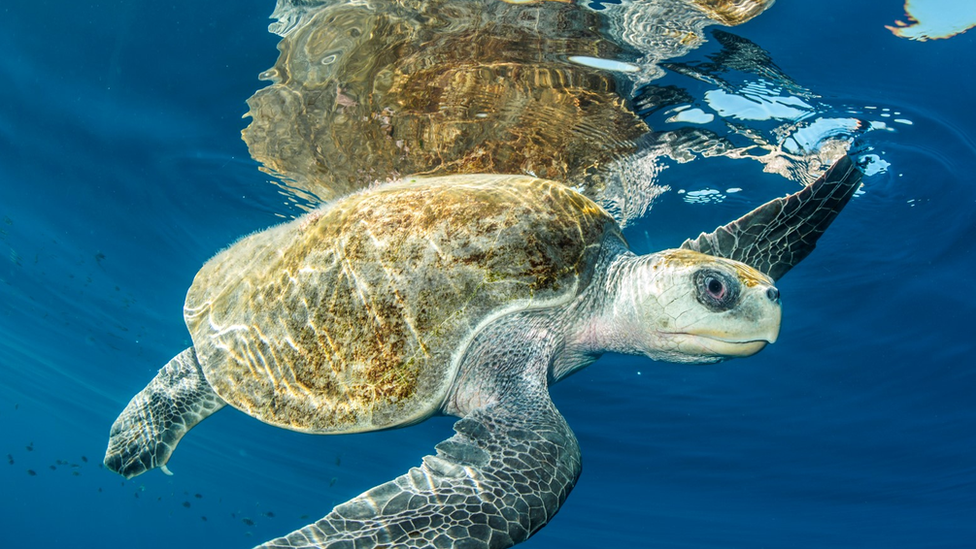
Sometimes in Guatemala, sea turtles can be caught along the Atlantic and Pacific coasts with people wanting to trade them for money
The ocean covers 70 percent of the Earth, but experts have warned that its importance has long been overlooked as a way to safeguarding climate, food and biodiversity.
Currently, only 7 percent of the ocean is protected but a pledge to protect at least 30 percent of the world's oceans by 2030 was agreed at the UN biodiversity summit in 2021.
Last year the British government also announced plans to create special areas in England's seas, where any activity that could harm wildlife or animal habitats would be banned.
It is hoped that banning activities such as fishing and dredging in these areas can give the plants and animals that live there a much greater deal of protection.
But plans like these often to cause concerns for other sea users such as fishermen, who worry about how their trade can be affected.
- Published13 June 2024

- Published8 June 2021
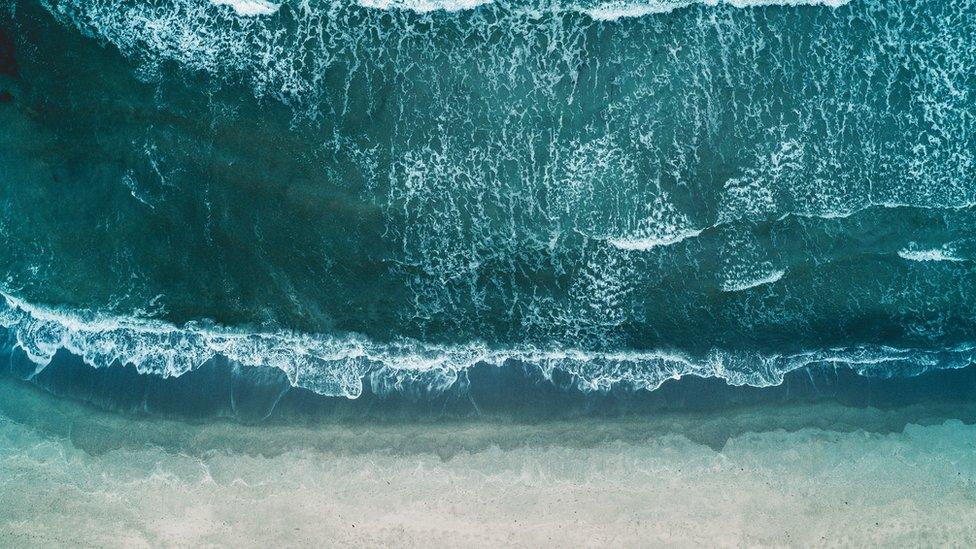
- Published2 April 2020
